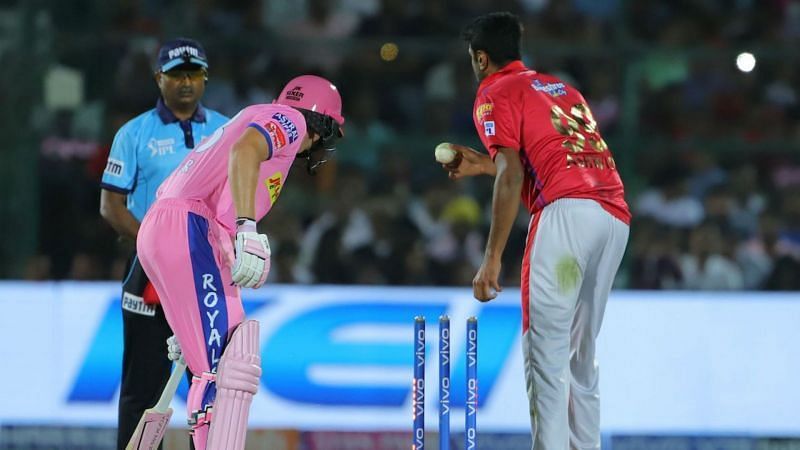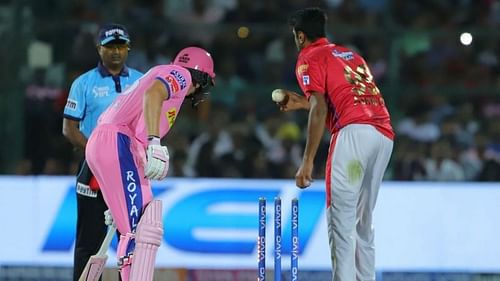
IPL 2019: How about codifying the spirit of cricket?

Ravichandran Ashwin's 'mankading' of Jos Buttler at the Sawai Mansingh Stadium on the 25th was infuriating, no doubt. This writer's rage only collected more red as the Royals, the team he supports at the IPL, made a mess of what should have been a straightforward chase, following a reasonable recovery after Buttler's dismissal.
At no point between Buttler's run out and the bitter end, however, did he think of Ashwin's act as anything beyond the pale. Sure, Ashwin could have given Buttler due warning, because that is the proper thing to do, but if the rule book says that a batsman should not be taking a head start before a bowler loads, why is the bowler generally held culpable for dismissing him, when he is doing so?
The writer was watching the match on TV, and thought that Buttler's two steps forward were no more than most batsmen, including Ashwin himself, might take in the normal course of a limited-overs game.
The question that needs to be asked of Ashwin therefore is whether he thought Buttler was trying to gain unfair advantage and whether, in his opinion, what he did was within the legal ambit of the game. If his own interpretation of the 'mankading' seems self-serving, let the matter be taken up by an independent panel and be resolved.
Oh, it's against the Spirit of Cricket... but what IS the Spirit of Cricket?
What won't do, but what is happening right now, predictably, is the denunciation of Ashwin based on something that is, often, defined vaguely and, sometimes, not at all: Spirit of Cricket.
It is difficult even to get at a working definition of the term. For starters, other sports do not have anything so popularly analogous. Secondly, the term seems to have an uneasy relationship, if any at all, with the rules of the game. Lastly, it is almost always used to condemn an opponent's behaviour, rather than as an intangible guide of one's own.
The second and third points mentioned above are related, especially in practice. When a player acts within the rules of the game and if said action disadvantages, or even inconveniences, members of the opposite team, they have a ready recourse available in the Spirit of Cricket, through whose good offices it can be painted in poor light.
The message sent across is ironic: what is legal in cricket is not necessarily 'good'. What is good? Well, the answer seems to be whatever one's team does, or does not, depending on the circumstances.
Time to put the Spirit in the rule book
Jibes aside, if cricket is serious about reducing the disconnect between legal actions and good actions, it should begin by defining what constitutes goodness on the field of play.
Rules can then be (re)framed to reflect the (newly) defined standards of goodness. This way, the spirit of cricket becomes an essential and lucid part of the playing framework, which is an enlightened step up from its role as a deux ex machina that any cricketer can call upon in times of need.
'Mankading' itself can be used as a test case in any attempt to codify the Spirit of Cricket. When the non-striker takes a couple of steps forward before the bowler loads, does it give him undue advantage in reaching the other end, should a run be initiated? (Can unfair advantage be measured? How?).
If yes, is a bowler allowed to run a batsman out any time he sees him advance from the crease? Or should the batsman be warned first, so that he is aware that he may be 'run out' anytime?
Similar questions may also be asked with respect to other grey areas in cricket, where the game's Spirit and rule book lock horns with each other. Answers to such questions should result in the legality of any action becoming entwined, inevitably, with the Spirit of the Game. That will be a welcome result.
Follow Sportskeeda for all the updates on IPL live score, purple cap, points table, schedule, news, orange cap and fantasy tips.